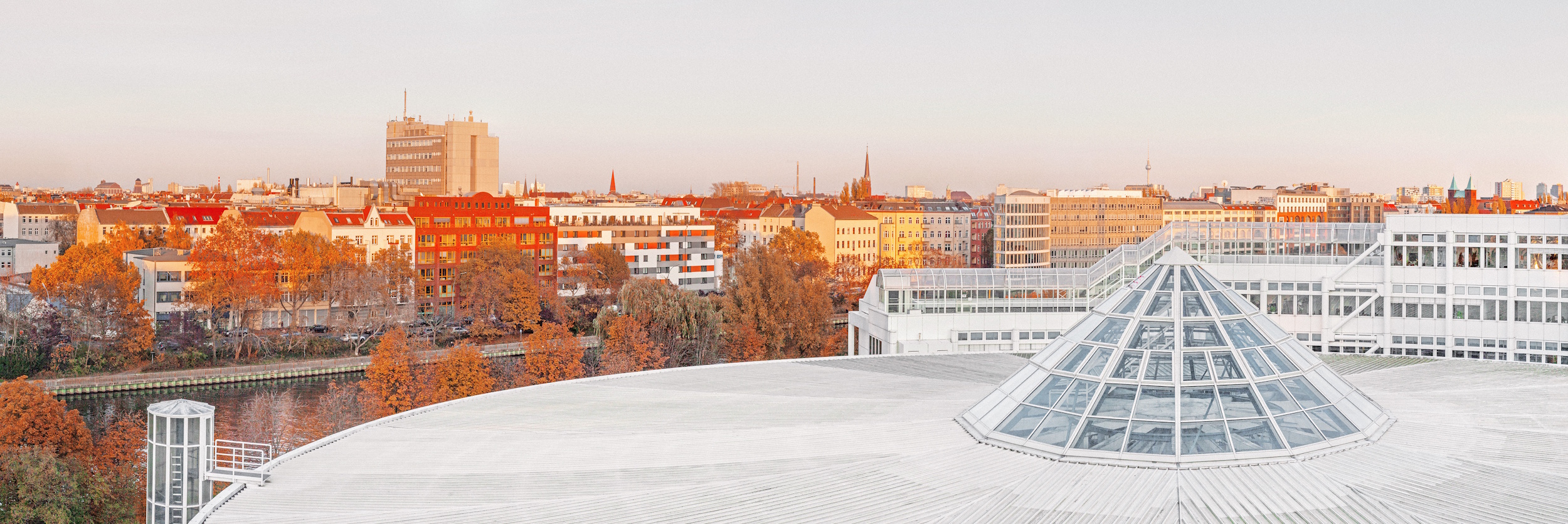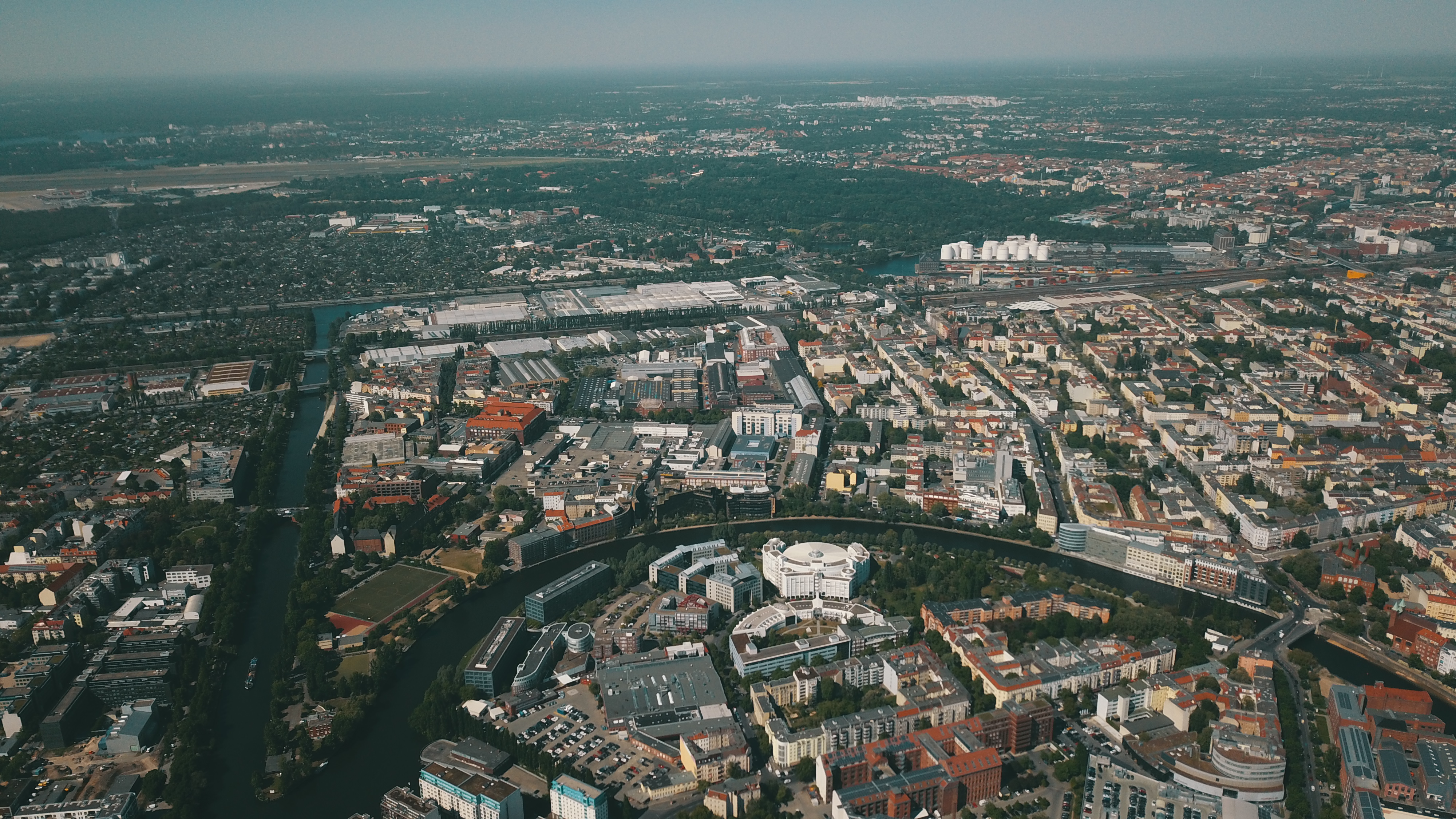The Fraunhofer IPK is located on the banks of the river Spree as part of the Production Technology Center (PTZ) Berlin. In this area, the river forms the border between two districts, each of which in its own way plays an important role in Berlin's history as an industrial location: Charlottenburg and Moabit.
Industry and research in Berlin
Moabit was already industrialized in the early 19th century. Its location on the river Spree was essential for the transport of raw materials and industrial goods. The district quickly established itself as a location for large mechanical engineering plants and later as a residential area for workers.
Charlottenburg took a different route. Between Siemensstadt in the northwest and the TU Berlin campus in the southeast, there are numerous research institutes that have made the district into a center of German engineering and production science for decades.
At Fraunhofer IPK, these two threads come together in a symbolic way. Since the institute was founded in 1986, it has seen itself as an interface between production science and manufacturing industry - rooted in Berlin, with a global orientation. Together with three other Fraunhofer institutes, numerous Fraunhofer-related institutions, universities, research institutions and research companies, we are part of the capital's diverse research landscape.
 Fraunhofer Institute for Production Systems and Design Technology
Fraunhofer Institute for Production Systems and Design Technology
